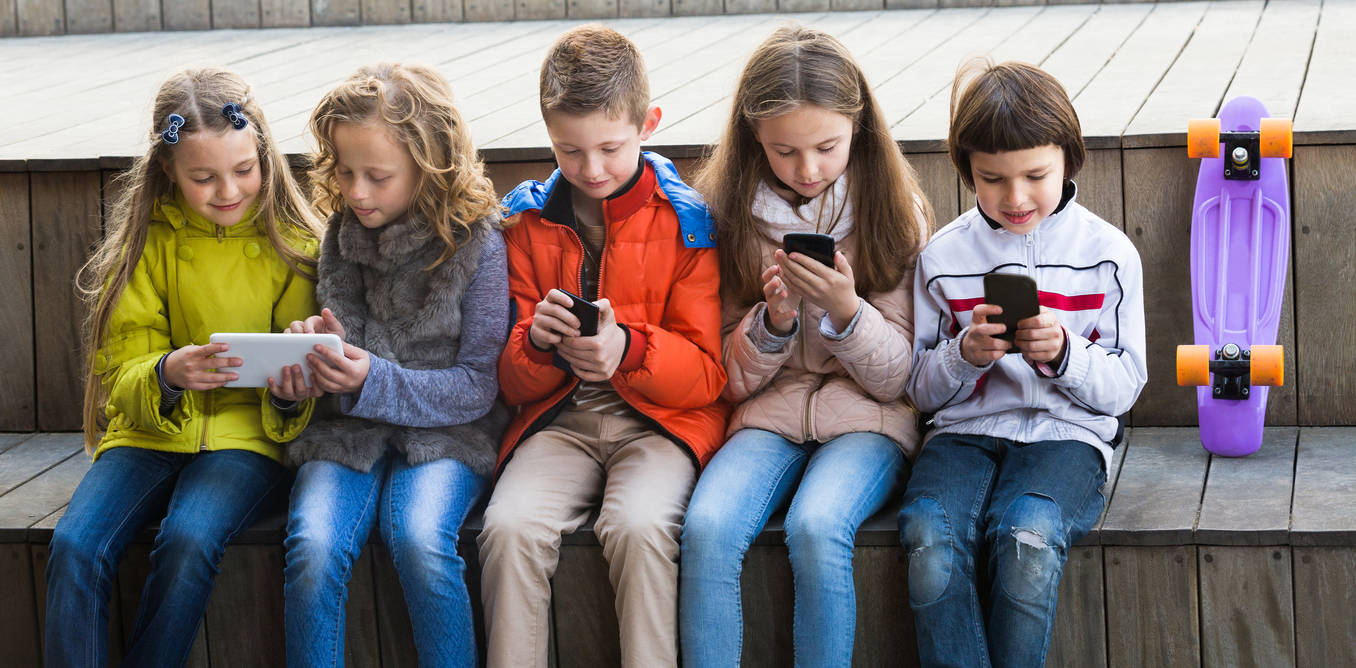
January 21, 2019
The Age-Old Question: Is Social Media Good for Kids?
It’s the age-old question: is social media good or bad for children?
To start out, social media is the rapidly evolving platform for younger people to communicate and express themselves and share content of all kinds, whether it be personal or work-related.
While social media sites like Facebook, Twitter, Youtube, and Tumblr can benefit children and teenagers, they can also expose them to danger and risk such as cyberbullying, depression, and even suicide.
Here at GreatLike Media, as an Orange County digital marketing agency, we strive to develop a healthy relationship between the use of social media and organizations by providing digital marketing, SEO, content creation, and more.
Positive effects:
-Spending time on social media networks and communicating with others is important for the younger generation to pick up on communication skills that they might not be able to get from anywhere else. It allows them to participate in a larger society and learn the social skills of that generation. From this, kids will also learn to adapt to having an elaborate online network of friends and acquaintances.
-Social media is not just a platform for socializing, but also a way to express creativity, interact, and learn with the ones around you. Students can use it to create groups such as study groups, volunteer groups, and more. It gives the youth a platform to grow, learn, and develop passions.
-Social networking is changing the way kids learn by introducing a more peer-based learning method where students are motivated to learn from their peers in the group. With access to comment and leave feedback for one another, their learning process is being refined in a positive way.
-Social media allows the youth to communicate and stay “in the loop.” It is used as an avenue to stay connected with their peers from sports teams, clubs, and classes while also allowing them to network from a young age.
-Studies show that social media naturally makes people more empathetic, considerate, and relationship-oriented. This is because kids can express how they feel by commenting or liking pictures, videos, GIFs, or status updates posted by their peers.
-Studies show that kids maintain long-term friendships with others by staying in touch with them online even when they no longer see/meet each other in person. The network serves as a platform that aids to communication.
-Social media offers a platform for the youth to connect with people they share interests with/connect with. (E.g. Biking, drawing, singing, gaming, planting, and more)
-Social media gives the youth a chance to have a positive influence on their community through their social networking groups. (E.g. political groups, volunteer groups
-Social media allows the youth to network with virtually anyone from around the globe, which exposes them to new cultures and ideas they may not have otherwise come across. It helps kids acquire a broader perspective on the world, which may lead them to be less judgemental and more open-minded
Negative effects:
-Addiction to social media. Some experts believe that addiction can be the simple habit of constantly checking ones’ phone or the “news feed” of different social media platforms. “Likes” and “shares” activate the reward centre in the brain which is highly sensitive during adolescence and may partly explain why more teenagers are into social media than adults. Furthermore, this can affect a child’s mood if he/she doesn’t get as many “likes” or “shares” and his/her friend. As social creatures, we value interaction and connection, both of which tend to determine how we think of ourselves. Therefore, if one child gets 300 likes and the other child gets 100 likes, the second child may think that he/she is less than the other.
-Social media can be disruptive. The addiction to social media can interrupt activities such as school work, sports, study, and other productive routines. Teens will end up wasting hours on social media resulting in poor grades or lack of engagement in school. Some heavy users of social media admit to checking their feeds as many as 100 times a day and sometimes during school hours.
-Studies show that children who spend more than 3 hours a day on social media are twice as likely to suffer from poor mental health. One report by the IZA Institute of Labour Economics suggests that spending only an hour a day on social media can make a teen miserable due to the influence of social comparisons, cyberbullying and decreased person-to-person interactions.
-Using Facebook is also known to lead to a decline in subjective well-being in youngsters. Teens are also observed to be suffering from “Facebook depression” after spending too much time on it or other social networking sites. Some children will become anxious and moody as they see that the lives of their friends are better than theirs, even though they may know that their representation is idealized.
-FOMO: fear of missing out. While some teens get affected by the pressure of having to react to posts or respond to messages, others fear not being in the social loop. Because of this, teens will obsessively check their media feeds for updates by friends as they don’t want to miss out on jokes, activities, parties, and gossip. FOMO can also lead to depression and anxiety while being a major contributor to teenagers’ heavy use of social media.
-Social media can quickly turn into obsession with the self with the advent of camera phones. Taking selfies every hour and posting it on social media is strongly linked to narcissism and can triggers obsessions with one’s looks, leading to body dysmorphia, eating disorders, depression, and more mental health issues.
Now that you are given the facts and nothing more, how do you feel about social media and the youth? GreatLike Media is an Orange County digital marketing agency that focuses on digital marketing services and SEO, and we would love to read your comments below!
 Back to main posts
Back to main posts